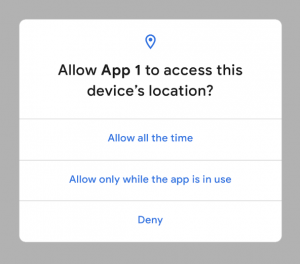 APPS
APPS
 APPS
APPS
 APPS
APPS
Google LLC today released the first beta version of Android Q, the next generation of its Android mobile operating system.
Available to owners of Google Pixel devices as well as developers, Android Q is pitched as “helping users take advantage of the latest innovations while making sure users’ security and privacy are always a top priority.”
Although it doesn’t offer any major changes in its user interface, the new version of Android is the first to come with native support for phone notches. Currently, device makers have had to customize Android to fit around their various types of notches, but in Android Q that will no longer be necessary.
Folding phones get native support in Android Q for the first time as well. Although those are nascent so far, with only two models released so far — the Samsung Galaxy Fold and the Huawei Mate X — more foldable phones are expected in the year ahead, including a possible model from Google itself.
Android Q introduces always-on display support for the first time as well. A feature seen in phones from several manufacturers previously, most notably Samsung, it allows users to display data such as the time, what song is playing and battery charge on their screens when the screen is turned off.
 Arguably the biggest changes in Android Q are in security and privacy.
Arguably the biggest changes in Android Q are in security and privacy.
With the new version, users will have more control over whom they provide their device’s location to. Users can control which apps can obtain location data and when, including the ability to block all access to location data at all times.
Shared files get attention too. Users will be able to control access to which apps can obtain access to photos, video and audio collections using new runtime permissions.
Annoying apps are also challenged with a new function that prevents apps from jumping into the foreground while only being opened in the background. Developers will still be allowed to gain user attention for things such as incoming calls or message alerts but not for other purposes.
In an interesting twist, Android Q limits access to device identifiers such as IMEI, serial number and MAC address. By default, Android Q will randomize a device’s MAC address when connected to Wi-Fi to prevent the number being traced to the individual device.
Other changes include new sharing features, the ability to adjust system settings from within an app and improved support for peer-to-peer connections such as those involving “internet of things” devices.
The final release of Android Q is expected to arrive in the third quarter.
THANK YOU